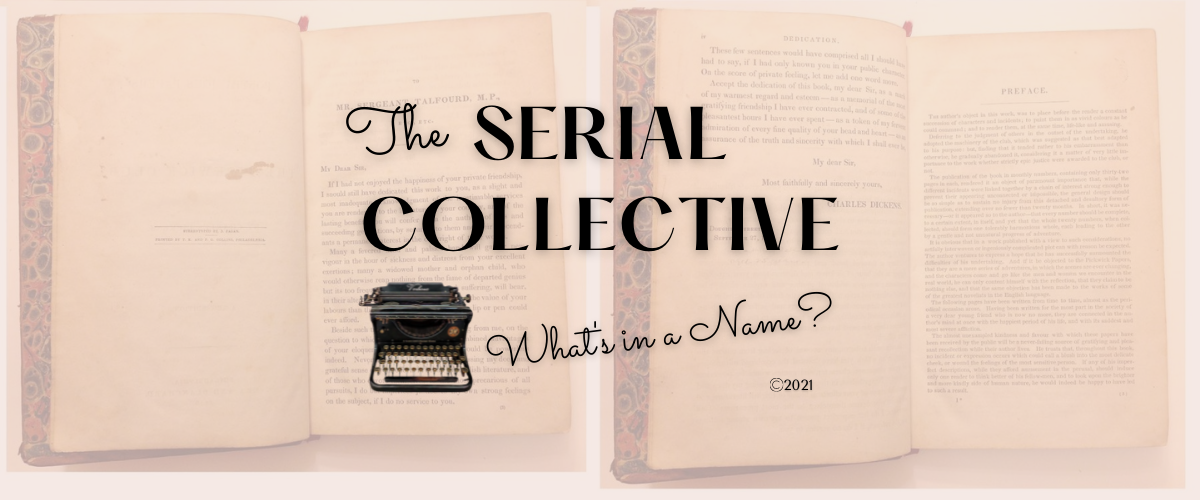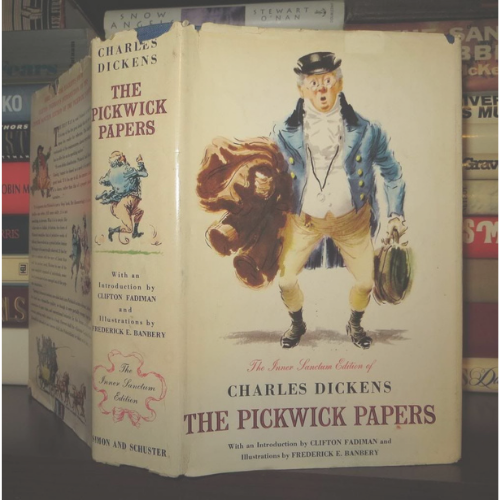
What’s with this name? Is this about serial killers?
If you’re a member of The Serial Collective and you’re writing about serial killers, that’s hella meta. And hella cool. But no, that’s not what everyone else is here for.
Publishing in serial form used to be a thing. Remember reading the Pickwick Papers by Boz (Charles Dickens) one issue at a time and having to wait, breathlessly, to find out what happens next? No, of course you don’t, not unless you were alive in the late 1830s and living in London or thereabouts and were worthy enough to have been born into a family that could afford to send you to school to learn to read instead of to work to bring in money when you were six.
The Pickwick Papers (full title: The Posthumous Papers of the Pickwick Club) were published across 19 issues from 1835 to 1837. Its was Charles Dickens’ first dive into serialized fiction. Although he wasn’t the first to publish novels this way, he was the first to make it crazy popular. Every issue delivered on its promise and then left off with a cliff hanger that had its readers talking, speculating, ruminating, and on high alert for the next installment.
It’s kind-of like the old days when you’d watch an episode of your favorite TV show and then have to wait a week for the next one. The producers kept you interested between seasons by ending one season on a cliff-hanger that would bug you for all the months in between, compelling you to seek out the time and date of the new season’s debut like it was your job.
Again, you have to be super old to remember that, according to my cousin’s kids. Like, 25 or something.
Now that just about anything and everything can be binge-consumed in a weekend, a lot of us tend to think we can binge-write an entire book or a finely crafted short story or a thoroughly researched article or a tremendously inspiring blog post in a hot minute. And since that ability is about as common as living next door to someone who happens to own original copies of The Pickwick Papers (not impossible, but not very likely), as your writing coach I’ve made it my business to set a realistic pace for you to write by.
I call this writing situation The Serial Collective for a very specific reason: Serial writing demands that each chapter, scene, article, short story, and blog post be its own story within the greater story. Whatever the elements of what you’re writing, you are accountable for delivering them in every block of words.
In fiction, for example, that means every scene must have an inciting incident, progressive complications, crisis, climax, and resolution.
In non-fiction, that means you must make your point, support it, adhere to it, and be very clear about it, without wandering off on tangents.
The Serial Collective is designed to keep its members focused on honoring the expectations of their readers, practicing the art of writing page-turning content, and remaining fully engaged in story and substance, one 2,000-ish block of words at a time.
The Critique Pool within The Serial Collective supports this intention. Members who want to be critiqued become part of the pool, with the understanding that for every critique the receive, they commit to critiquing one in exchange. Read more about The Critique Pool here.
